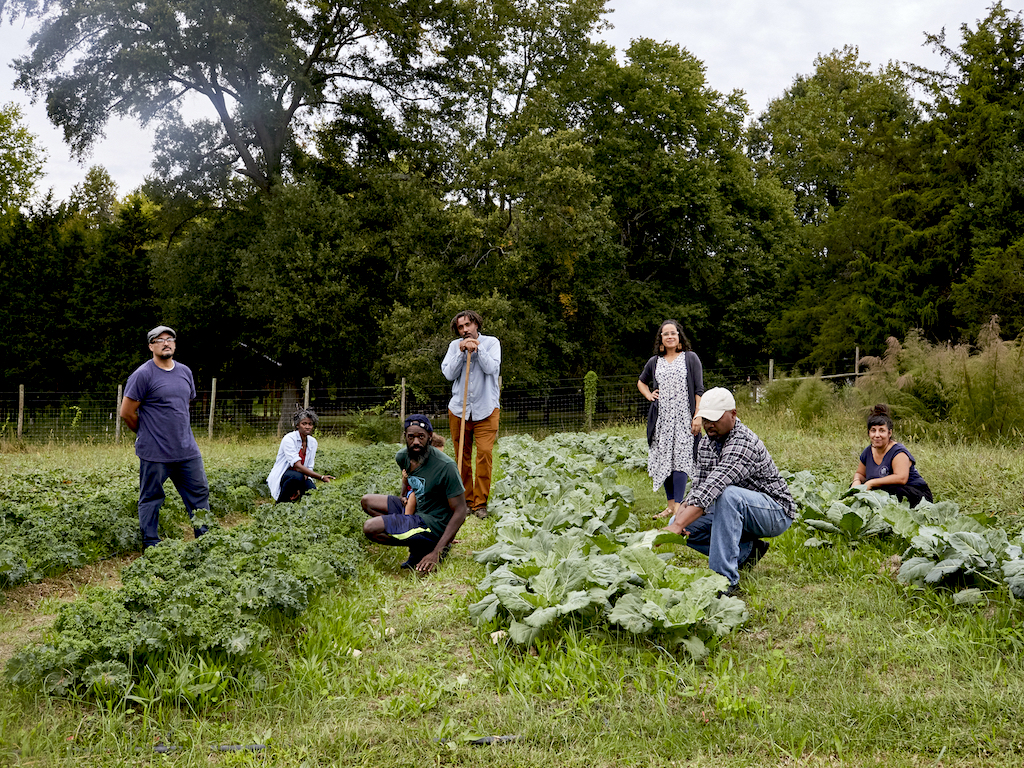4 Mins Read
After a century of land loss, there’s now a rising movement of young Black Americans reclaiming their agricultural power and ownership of farmland. It combines the dismantling of racism and marginalisation amid the social justice movement sweeping across America with the growing awareness of the linkages between a sustainable food system and equality. From California to New York, these young Black farmers are shifting power back into their own hands and democratising the right to nutritious, affordable, sustainable food.
Non-white farmers currently make up just 2% of private agricultural landowners in the U.S., but there’s a new wave now looking to rebalance the books. The grassroots movement of Black farmers, campaigners and activists recognise the link between generational poverty, underserved and overpoliced communities, fresh food deserts and climate and social injustice in the America that has been built on slavery, margalisation and racism.
The sustainable food solutions they’ve come up with are unique and innovative in their own ways, are locally-focused and give right back to their surrounding communities.
33-year-old Damian Fagon is part of this movement. In 2015, it dawned upon the Columbia University graduate as hemp and CBD started to become popular that the crop was abundantly grown in the wild in Jamaica, where his father was a second-generation farmer. Fagon went onto found sustainable hemp startup Gullybean in New York’s Hudson Valley, where organic agriculture is dominated by white farmers, and the journey hasn’t been easy to say the least.
“There are still guys out there who will yell ‘Negro’ at you,” he told Vogue in a recent interview. “It’s a deeply red voting district. Conservative and agriculturally based families who have been there for generations. They don’t tend to like outsiders that much, especially ones from the city.”
Fagon later managed to gain help from an Asian American farmer, who showed him the ropes when it came to irrigating fields and growing the crop efficiently.
Gullybean now describes itself as a “plant company dedicated to people” and is gearing up to launch their first product this summer, a CBD tincture infused with turmeric. 5% of all its sales will go back to support food justice organisations and urban farms that are working to deliver nutritious fresh produce to New York-based communities of colour.
In Los Angeles, 37-year-old Jamiah Hargins is bringing food sovereignty to the communities in the Southern parts of the city, where people have for years suffered from the lack of access to fresh food. In the majority Black neighbourhood of View Park, for instance, the nearest supermarket is more than a mile away.
With his startup Asante Microfarm, a reference to the Swahili word for thank you, Hargins wants to solve the problem by setting up microfarms across people’s front yards. These are small, tiny plots available to people to use through a subscription basis, empowering them to grow their own sustainable produce.
“Everybody is entitled to the nutrients beneath their feet. That applies to people in apartment buildings, or condos,” said Hargins in an LA Times feature. “They have the right to have local food. Folks can have a different life. I’m hoping to show that it can be done.”
Today, Asante Microfarm is able to grow over 600 plants and feeds around 50 families. Subscribers visit the farm by biking or on foot, picking up the produce, and 10% of all the harvest is donated to a community fridge in Degnan Boulevard to serve communities in need.
Meanwhile, in Durham, North Carolina, the Earthseed Land Collective founded by Tahz Walker, Santos Flores, Courtney Woods, Justin Robinson, Zulayka Santiago, Corre Robinson and Cristina Rivera Chapman, are hoping to encourage “people of color to reimagine their relationship to land” with its collective living concept based in former Stagville, one of the largest plantation complexes in the American South.
Within the property, they have set up a worm compost, hoop houses, and their Tierra Negra Farm, where fresh produce is grown and sold through a vegetable box subscription for dozens of nearby families.
In addition to supplying the neighbourhood, including the very descendants of the enslaved population of Stagville, the farm supplies Communities in Partnership, a local nonprofit that brings affordable fresh food to East Durham.
For Karen Washington, the renowned Bronx, New York-based urban farmer and social justice activist who coined the term “food apartheid” to describe the structural inequalities within the American food system, this movement of young Black American farmers represents a turning point after years of trauma due to generations of slavery, sharecropping, racist farm policy alienating Black farmers from land ownership.
Speaking to Mother Jones, Washington, who has co-founded the La Familia Verde Garden Coalition, the Black Urban Growers and the Black Farmer Fund, said: “I never in my wildest dreams thought that there would be young people wanting to become farmers.”
“A different narrative has started to surface: power behind owning land and controlling what you eat.”
Lead image of Earthseed Land Collective members, courtesy of Southern Cultures.



